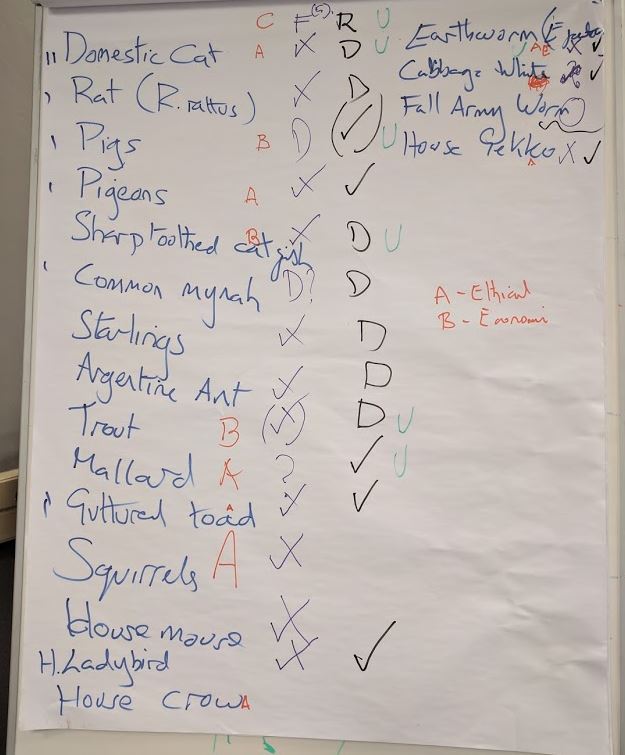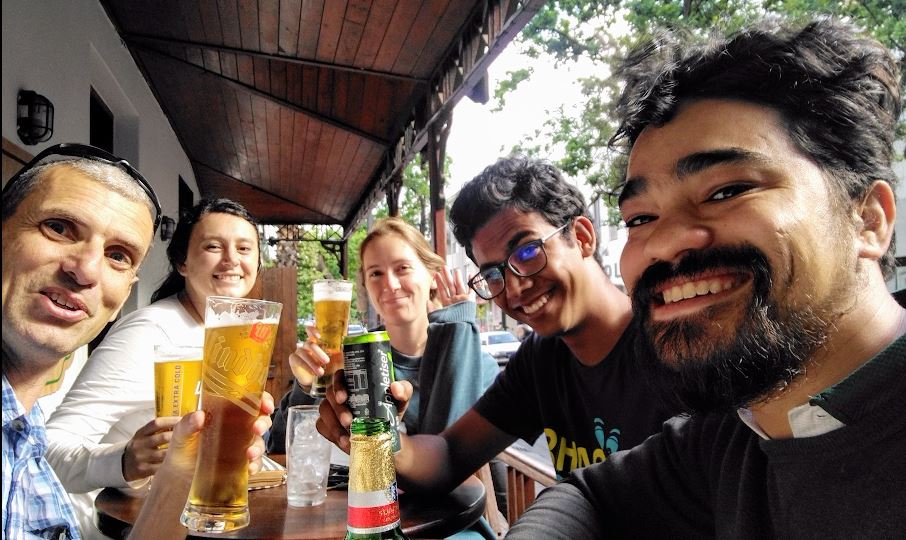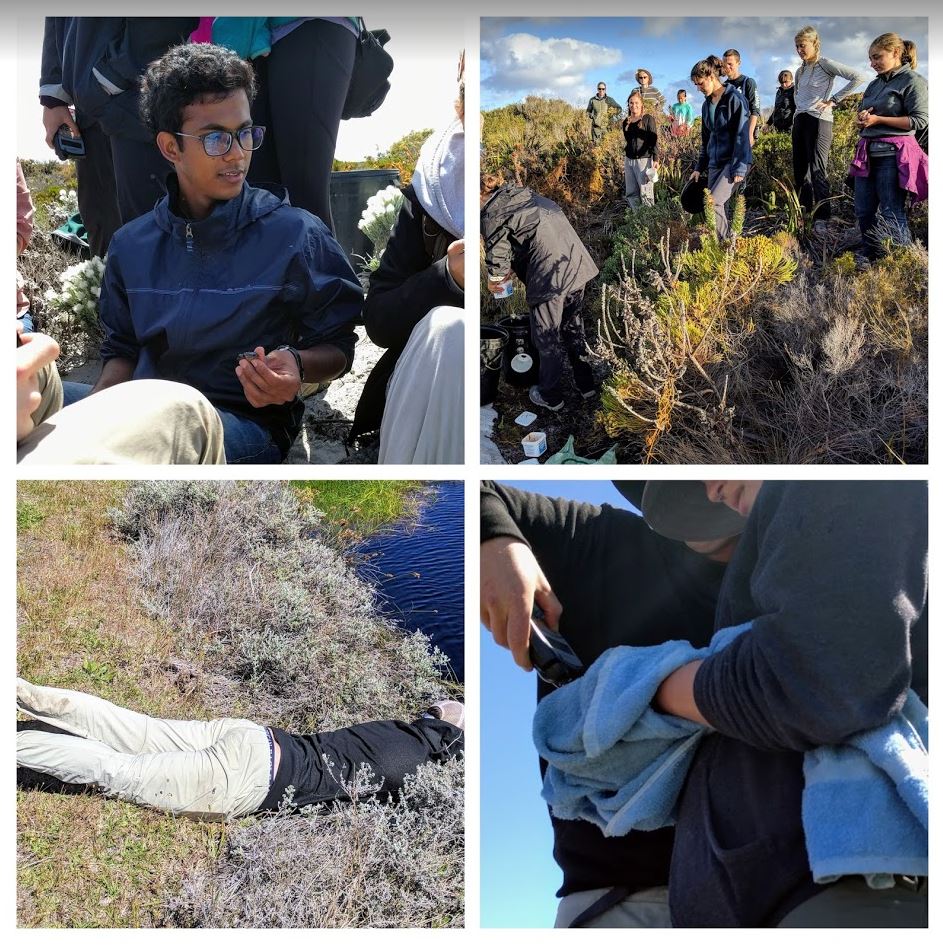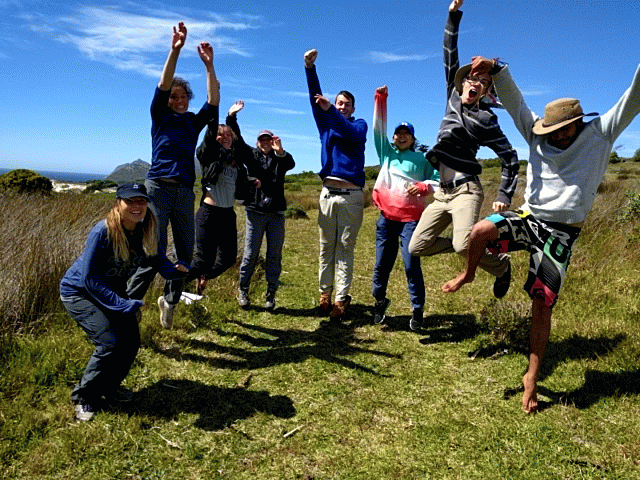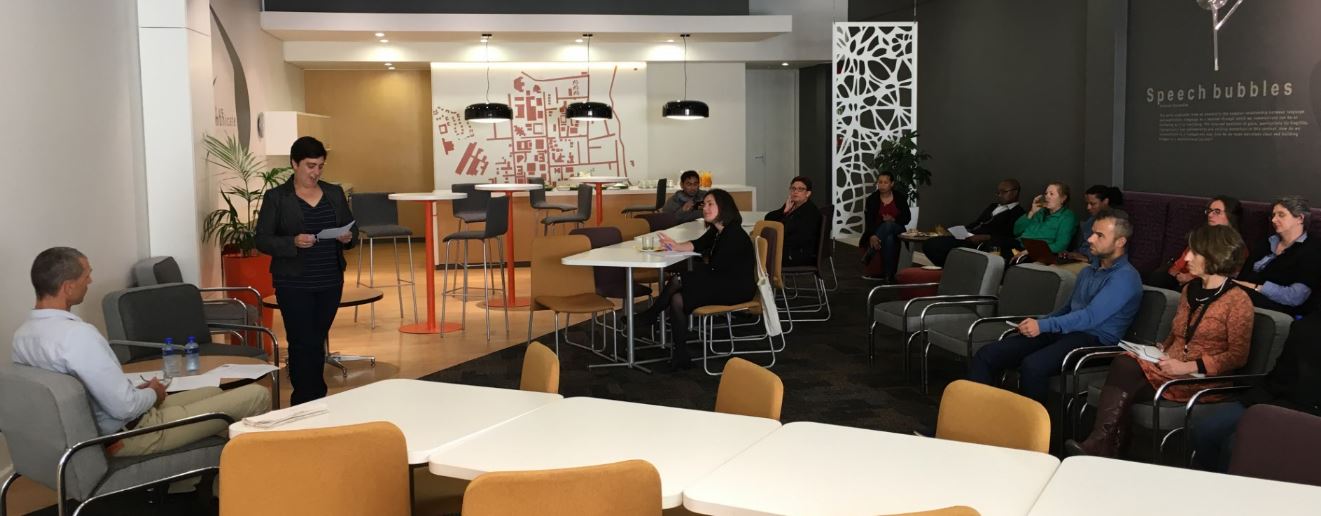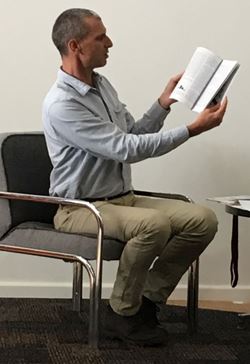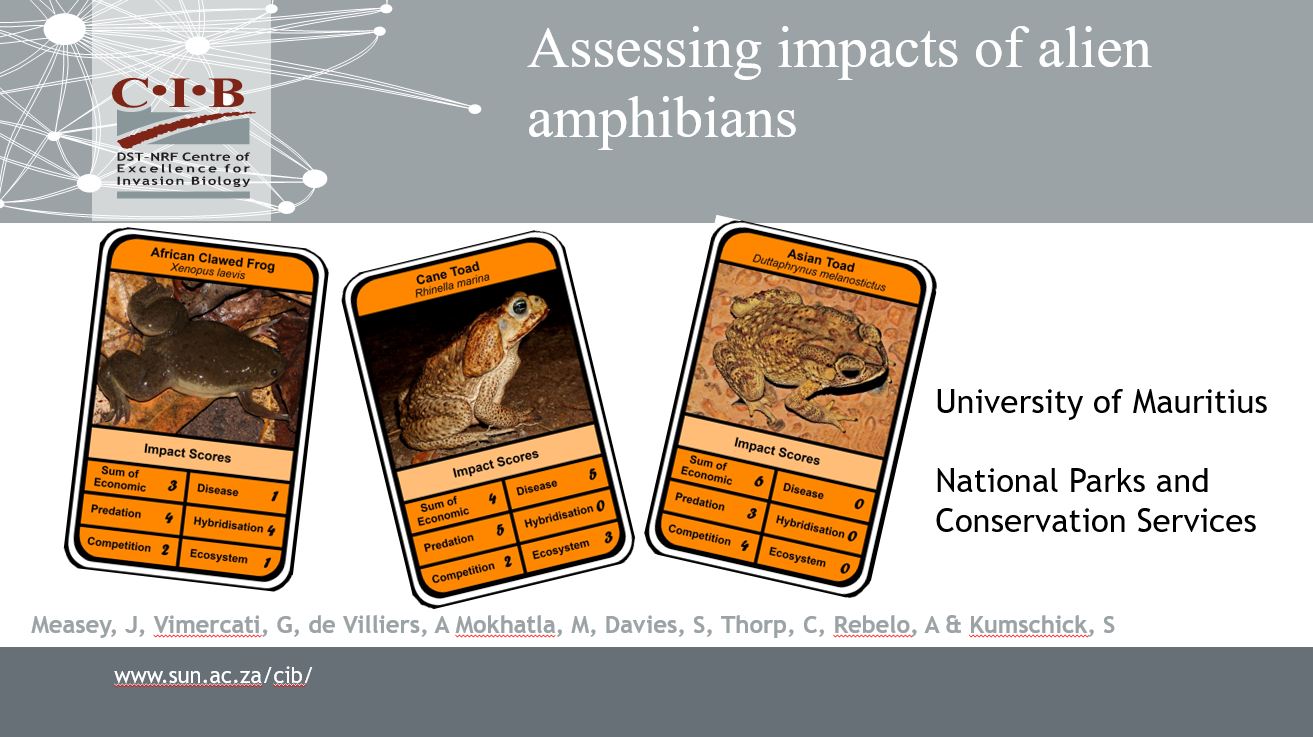Why are we disinterested in animal invasions?
Invasives in the Cape Discussion Group is a regular discussion group focussing on invasions that are happening within the fynbos. Hosted at the CIB (and usually led by John R. U. Wilson) the group consists of representatives from SANBI, City of Cape Town, CPUT, UWC, ARC, DAFF, DEA, CapeNature, and the CIB.
Agreeing to cover for John while he was away, I posed the question: Why are we disinterested in animal invasions? The Cape is replete with animal species which we appear to ignore, or prefer not to think about. Can we define why so many animal invasions are not important to us - or define how and when we would definitely do something? This month's meeting will focus on the current suite of animal invasions in the Cape and ask which we should be doing more about.
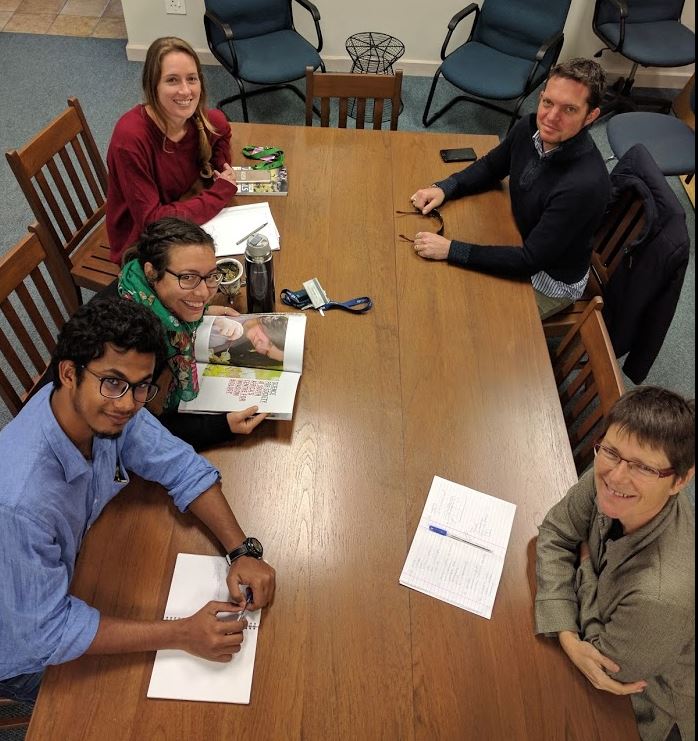
Despite having a circulation list of 105 people, we were only 6 for the meeting (from left to right): Nitya Mohanty, Florencia Yannelli, Marike Louw, Phil McLean & Sarah Davies.
Our numbers spoke volumes about the disinterest in invasive animals.
Nevertheless, we made a list of Cape invasive animals and the reasons why they were not controlled or eradicated. Note that the list isn't exhaustive but gives some indications about why animals are so hard to tackle. First, control of many species were found to have ethical or economic conflicts (C). Invasions of many species were considered to be to far advanced to be feasible to control (F). Whether or not research was needed before a decision on control/eradication could be made (R). Lastly, many of the species are utilised, potentially causing further conflicts with their control.
